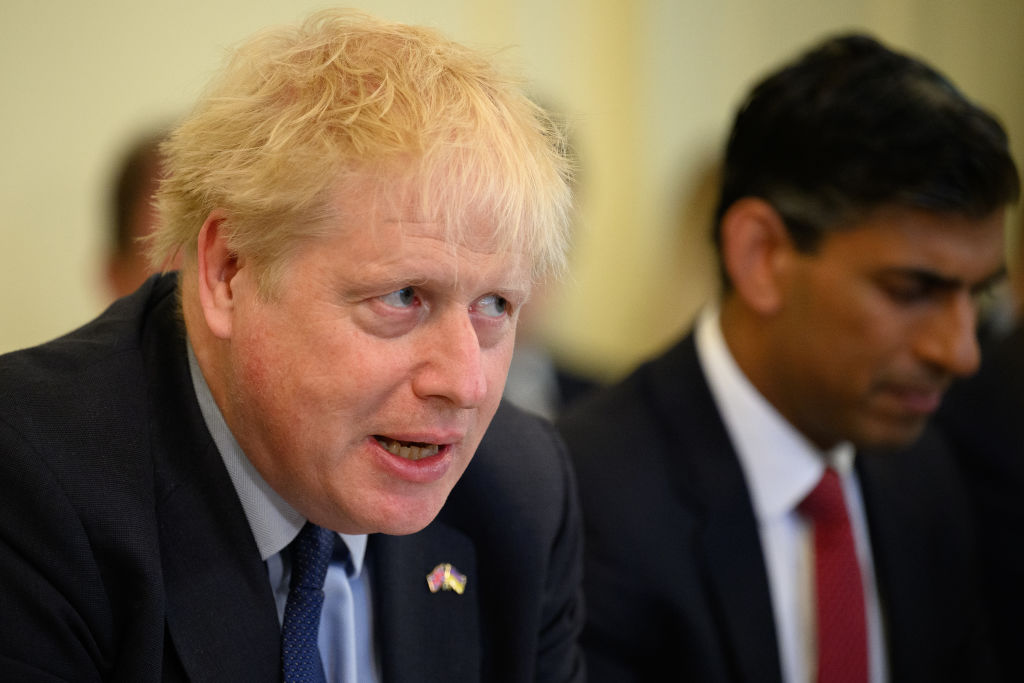Boris Johnson can win elections, but he never knew what to do once he did

A year ago, it would have meant something to say it has been a momentous week in politics. Since my last column appeared, the Chancellor of the Exchequer has been dismissed, a crunch vote in the House of Commons has been won despite spectacular mismanagement by the government, and the prime minister has announced her resignation. Oh, and until last night a Boris Johnson comeback was looking increasingly likely.
Many spectators are, I fear, fighting fatigue now more than breathless excitement. The speed at which our politics is happening, and the consistency with which the pace is quickening, is a peril in itself. Especially for the Conservative Party, who need some time for some serious soul searching.
Today we will find out whether there are one, two or three candidates for the leadership of the Conservative Party. Penny Mordaunt, the leader of the House of Commons, was first out of the starting gate on Friday, only days after she told bemused MPs that Liz Truss, the soon to be former prime minister, “was not under a desk”.
The apparent rejection not only of Liz Truss but her ideological framework after barely six weeks might suggest to some that the Conservative Party should reflect rather deeply and in detail on its future, but there is simply no time. There will be a new prime minister in office by the end of this week, a breakneck selection process which was the very objective of the way the latest interpretation of the rules was designed. No fuss, no muddle, no dither: get a new leader, and move on.
There is, perhaps, one obvious dividing line. Even the possibility of a resurrection of Boris Johnson as a candidate for the premiership—which, one feels, might have started as a witty confection over l’heure bleu cocktails, before taking on corporeal form—has asked a question of Conservative MPs: in order to try to retain your seat at the next general election, what are you willing to do? Or, perhaps more accurately, what are you willing to tolerate?
The alacrity with which Boris’ name was seized and passed around suggests that a lot of MPs are willing to turn a blind eye that would make Nelson look visually acute. Some have tried to gloss over the misdeeds which brought Johnson low, one Twitterer remarking that there were few MPs “wanting to lose those seats over a piece of cake in a garden”. This is, of course, a grotesque misrecollection of why Johnson was ousted by his own party.
Such moral hedgers have forgotten two ethics advisers resigning, two safe seats lost to the Liberal Democrats in by-elections, a defection to Labour, accusations of lying to Parliament and a dithering and secretive approach to a Conservative MP accused of sexual assault in the Carlton Club.
Forgetting all of those things, and ignoring the fact that Boris is still under investigation by the Committee of Privileges for misleading the Commons, for which he could be suspended or even expelled from the House, demonstrates a durable belief in Johnson’s electoral magic touch. It also reduces politics to its bones as a mere transaction, with retaining office the only objective. It would be a sad day if the party was to assent to that proposition. Boris Johnson may be, albeit in only some circumstances, an electoral asset. But he is terrible at governing. He was unable to bring together the warring factions of the party and had such an abysmal grasp on policy that the only meaningful idea propounded by his government was to sending refugees to Rwanda.
In classic Johnsonian style, it was a policy so fraught with practical hurdles it has yet to achieve anything except further divisiveness in our politics and in the Conservative Party.
But by Friday, barring catastrophes, there will be a new prime minister. Another Conservative leadership election will be over and we can start to focus on other events. But our political class must realise that it is in the last-chance saloon and the bell has been rung. The new prime minister must address the nation’s economic challenges and broader prosperity as soon as the threshold of Downing Street is crossed. If it was true in September, it is infinitely more true now: there is no time to waste.